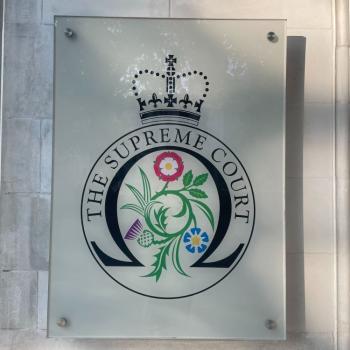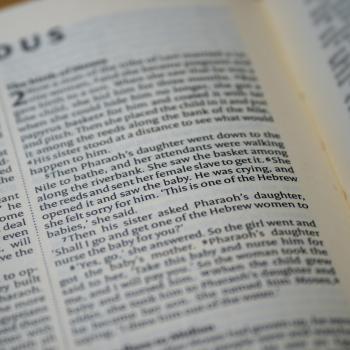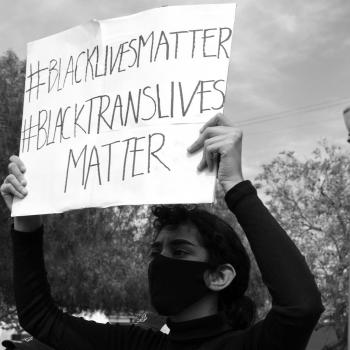UPDATE: I was just pointed to Daniel Darling’s Twitter page, which posted the following from the ERLC:
We made a mistake on our @ERLC website yesterday. I’d like to explain how it happened and apologize: https://t.co/bQoLAyKaOg pic.twitter.com/bWGG00ntpV
— Daniel Darling (@dandarling) August 2, 2018
I am glad to see it was a mistake, and for the explanation given to clarify how it happened. I have left the original post up, namely, because it is still pertinent to addressing the views of Charles Camosy, and others who might similarly understand the nature and dignity of persons/animals. It is a bizarre line of reasoning, but as we can see, it is out there.
Recently, the ERLC, or the Ethics and Religious Liberty Commission of the Southern Baptist Convention, posted a short, yet incredibly bizarre vlog titled What is the Christian’s responsibility with respect to animals? James R. White brought attention to it on his Facebook page, as did Tom Ascol – and shortly thereafter the ERLC rerouted the link to their homepage. This didn’t prevent more savvy users from finding the cached data to the video, especially since it was posted to ERLC’s Vimeo site for a number of months previously.
However, the ERLC blocked the video from public access, and as of today, they have hidden the video from their own feed. Thankfully, internet data is the cached gift that keeps on giving, so all one must do is do a quick search of the vlog’s title to see that it is still tied to the ERLC, and we’re not taking crazy pills. Or you can you just watch the video below as well. In the event that this video is removed somehow, I’ve also included a full transcript of its contents below.
Well it’s one of those more interesting issues that the pro-life movement doesn’t generally take up but I’ve done a little bit of my own work on this. And I think that non-human animals – they aren’t obviously as important as human animals – merit our serious attention. They’re also vulnerable. They’re also voiceless. They also are pushed to the margins because they’re inconvenient – interestingly just like prenatal children are. And there’s a growing number of people who are pro-life in that they’re anti-abortion, but also pro-life in that they want to stand up for the dignity of non-human animals. And that’s a leading edge – a growing edge, if you will, of the pro-life movement in 2018.
Charles Camosy – Prof. of Theology; Fordham University, New York, NY.
Despite the length of the video, it is fraught with several theological maladies that would be humorous if it weren’t posted by an entity [sic] operating under the guise of biblical ethics. Surely, Scripture has no qualms making axiomatic statements on the character of a man based on the treatment of his animals (Proverbs 12:10), but the sheer amount of categorical errors in this video are alarming.
Placing “non-human” animals and human beings in the same kingdom wouldn’t be so large of an ordeal if the principle behind it were to simply utilize biological, taxonomic categories to classify them – yet this isn’t what he does. He specifically utilizes these terms, not to divide them into subordinate kinds, but to compel pro-life individuals to affirm the dignity of “non-human” animals. In effect, he’s using the terms in reverse order so as to argue they ought to be affirmed by pro-life Christians if they are consistent in their ethics.
In terms of biological classification, he’s moving from order to kingdom, in rapid succession, for the purpose of touting his own personal conviction of affirming the moral status of animals, and thusly, affirming a vegan ethic. For those who don’t know, the vegan ethic is not born out of principles of human worth and a special, elevated dignity in this construct, but of the universal worth of all living things within the animal kingdom. What this means is that the dignity of humanity and the rest of the animal kingdom is viewed equally. Thus, it is more akin to the philosophical underpinnings of Buddhism than biblical Christianity.
In the Christian ethic, these terms mean something. Dignity and worth are ascribed on the basis of the one bearing the Imago Dei. This is not to say “non-human” animals have no intrinsic worth – but it is to specifically say that animals do not contain a moral, dignitary status in even a remotely close manner with that of human beings. To say they do not only blurs the distinctions between both order and kingdom, but also denies the biblical witness through the use of trajectory hermeneutics (i.e. Camosy argues here that people in ancient, impoverished areas might need to eat animals in order to survive, but modern, Western civilization does not, therefore, the higher ethic of preserving the life of the animal reigns).
The other common hermeneutic employed would be akin to an over-realized eschatology (i.e. there will no longer be death in the new age, therefore, we are morally obligated not to kill “non-human” animals for food today). Thus, when one cites a passage such as (Acts 10:13), or even appeals to the witness of cultic practice in the Old Testament with regard to the sacrificial system, they are swiftly denied of its applicability on this same basis.
Despite all of this, perhaps the most interesting part is that this sphere of ethics seems to miss the boat with regard to the clear expression of man’s dominion over the earth (Genesis 1:26). Obviously, the axiom stands true with regard to how man exercises that dominion, whether resulting in abuse or rightful use of that authority, but the expediency with which we kill animals for food (or the fact that we kill them at all) does not indicate an abuse of that expression of dominion. Again, Christians have a moral responsibility to exercise dominion rightly, that is, to the glory of God – but in no place in Scripture do we find that killing an animal is a moral quandary.
Holding the presupposition that it is an abuse of this dominion, which is only done on the basis of adopting the theory of the moral dignity of “non-human” animals, is what leads to a conflated ideology that confuses the moral dignity of animals with the Imago Dei of humans. While Charles Camosy is quick to affirm humans have a higher dignity than “non-human” animals, it takes him bafflingly less than ten seconds to sharply contradict himself by equating them with prenatal children.
The fact of the matter though is that our Western culture doesn’t have that large of an issue with humane treatment of “non-human” animals – no – they have an obsessive compulsion to treat “non-human” animals better than humans. They have an idolatry problem. Go to any movie that involves the death of animals and humans on screen, and guess which death elicits the more visceral response. Guess how many perpetual adolescents are forgoing having children in their marriage in favor of adding another “fur-baby” to the “family.”
No, Western culture speaks of “non-human” animals as if they are of greater intrinsic worth than human beings made in the image of God, and Charles Camosy offers us the same categorical blunder here. This is the same exact rhetoric used by some of the more extreme ethical vegans, along with those who argue “pig farms are the equivalent of Auschwitz.” By equating the slaughter of “non-human” animals to that of untold children, Charles Camosy effectively reduces the severity of the slaughter of human beings.
Remember, it was not the blood of the sacrifice that cried out to the Lord from the earth; it was not the burning flesh of children at the altar of Moloch that was an aroma well-pleasing to the Lord; it was not for the welfare and moral dignity of animals that the Levitical cultic system was abolished – and the fact that the ERLC allowed this type of nonsense to be peddled under the auspices of biblical ethics is ludicrous. This certainly does not serve to allay the growing concerns of a large number of Southern Baptists (and even those outside of the SBC) with what looks like another step toward liberal, social ethics.













